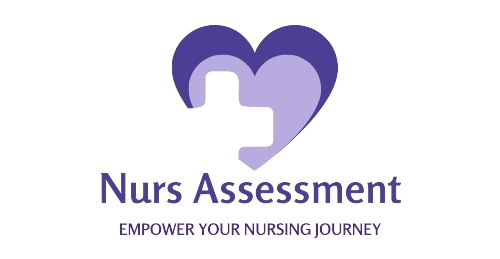Several academic sectors use reflective journal writing to conduct theoretical and practical research related to nurse’s personal experiences of the nursing process. Reflective writing allows nursing students to assess their subject matter as well as their learning process.
Furthermore, the nursing students express their observations and consider practice-based experiences. In this way, through reflective writing, they improve their experience of learning in the nursing process. Student Nursing Reflective Journal Examples include the following things:
- Practice and Theory Connection
Reflective journaling enables you to understand practice and theory links better.
- Examples associated with what you don’t know or what you know
It supports nursing students to become familiar with their strong and weak points.
- Encourage in-depth Thinking
Reflection encourages you to focus on “what you did” “how you did it” and “why you did it”
- Questions
Reflective journaling needs answers to some significant questions such as “Did I do it correctly”, and “How could I do it better”
Nursing school teachers assign reflective journal writing tasks to examine students’ experiences. Moreover, teachers also check how students are learning from their experiences and implementing it in their practice. Therefore, nursing students must learn to write reflective journals in an inspiring way. If you struggle with reflection writing, take help from a reflective journal in a nursing sample. No doubt, it will clear all your confusion and enable you to learn various things.
Take a Methodical Approach to the Reflective Journals Nursing Task | Method
Nursing students can learn the style of writing reflective journals from reflective journal samples. However, they should consider certain points to address during reflection in a systematic way. Furthermore, they should understand the style and format of reflective journaling. That’s why the example of the reflective journal can help students as well as nurses in this case.
METHOD
Reflective journaling has a specific method of writing reflections in a symmetrical way. Some points will come at the start and some come at the end. There is no need to flood all information at once. Always try to convey information in stepwise form. Reflective Journaling in Nursing Examples represents the following style and reflective journal format.
- Description
At the start of the reflective journal, you have to describe the situation and what happened. No conclusions or judgments at all.
- Feelings
Now express your feelings. Write about your feelings when you were present in that situation. Does everyone feel the same way or do you feel something different? No need to do an analysis at this stage.
- Evaluation
It’s time to describe the good points of that situation. In addition to the good points, you have to write about the bad points. Moreover, focus and judge the situation to evaluate it. Additionally, evaluate all your feelings and experience at that particular moment. Besides this, also write about your reaction. How do you react under such circumstances?
- Analysis
Now analyze your whole experience. Write about what was happening there. Did you experience something different or did everyone experience the same thing? Do a fair analysis of every minor detail. Express your concerns and experiences. You must understand that reflective study in nursing is very important. So, do a proper analysis.
- Conclusion
Time to conclude your experience of that situation. Write what you conclude from analysis and experience. Consider everything such as your feelings, experience, response, and outcome. Afterward, conclude the situation as a whole.
- Future Plans
After writing the meaningful conclusion, now describe what you are going to do in the future. What did you learn? How you will handle the situation in the future after learning from experience. How did you improve your reaction and way of handling the situation as per your new learning?
This is a method for writing purposeful reflective journals in nursing. Nursing students must consider all significant points and symmetrically write them. In this way, their journal will be impressive and inspiring as well. If they feel any problem then consult Reflective Journal Nursing Clinical Example for better knowledge and understanding.
Key Ingredients of Reflective Journal Nursing
Reflection and nursing both are connected with each other. No doubt, reflective journaling in the nursing field is essential to learn new things and improve your level of nursing process. A few key ingredients of reflective journal nursing can build your perfect reflection.
- Observation
You need to become an efficient observer to reflect later. When you are facing any situation, try to pay attention to every detail. Be an active observer.
- Experience
Reflection requires a description of your honest feelings and experience of that moment. Therefore, try to concentrate on the fact that your words are explaining your real emotion at that time.
- Conclusion
What do you conclude from the analysis of your experience and what your feelings told you?
- Change in Future
How you can bring change in your nursing process or responding similar situations in the future.
Reflective nursing examples also play an important role in the success of nursing students.
FAQs
- How to write an introduction in a reflective journal?
Talk about a particular event that you are reflecting upon. Additionally, symmetrically provides information. Don’t flood information in one paragraph or one section.
- How do you address sensitive or challenging experiences in a reflective journal?
Preferably, while addressing sensitive situations and experiences, pay attention to your own ideas, emotions, and learning rather than the specific one. Furthermore, you need to explain everything appropriately. No need to hide anything.
- What are the components of the reflective journal?
There are many different components of reflective writing such as:
- Description
- Analysis
- Interpretation
- Can reflective journals be used for professional development?
Of Course, yes, reflective journals are playing a main role in professional growth. As well as also improve their self-assessment and knowledge. They can also be helpful for documentation, tracking progress and achieving goals.
- What is the best model for the reflective journal?
Gibbs’s model is the best model to understand writing a reflective journal.
- Describe
- Feeling
- Evaluate
- Analyze
- Conclude
- Action Plans

